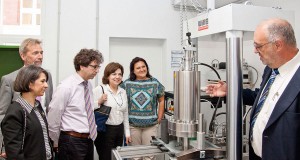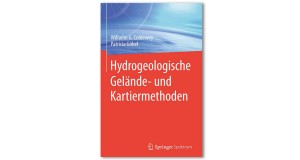A programme set up on behalf of the German Ministry for Economic Cooperation and Development (BMZ) by the German Society for International Cooperation (GIZ) and the Indian Central Electricity Authority (CEA) has resulted in annual CO2 savings of 1.6 million tonnes (which corresponds to around 1.2 million tonnes of Indian coal or a complete train with over 50 carriages full of coal every day). As a consultancy and efficiency service provider, STEAG GmbH in Essen played a key role in the programme. At a meeting in New Delhi at the end of June, representatives from the CEA and the Bureau of Energy Efficiency (BEE) thanked STEAG for its efforts.
The Indo-German Energy Programme (IGEN) “Power Plant Optimisation Component” launched in 2009 with the aim of reducing fuel consumption and emissions in India. As part of this programme, STEAG trained over 100 engineers from Indian public utility companies, conducted feasibility studies for energy-saving measures at 30 plants, and implemented model energy reduction initiatives at four selected pilot power plants. When it came to identifying potential efficiency measures, STEAG’s own software EBSILON® Professional played a key role. Developed in-house at STEAG, it is a tool for modelling thermo-dynamic cycles. This software enables users to map various types of power plant processes and evaluate them with regard to their efficiency and part-load performance.
Some of the improvement measures implemented at the pilot power plants were presented at the IGEN meeting: Using the STEAG software for support, areas of low efficiency could be identified and corresponding energy-saving measures could be set up at Indian power plants. The Suratgarh pilot power plant, located in the state of Rajasthan, north-west India, also installed an intelligent rust blowing system which led to improved boiler efficiency levels within a short space of time.
Dr. Winfried Damm, Director of the GIZ’s Indo-German Energy Programme, emphasised the success of these measures in the closing report for the IGEN programme: “Over the past six years, the IGEN team, supported by the Indian Electricity Authority and the consultants from STEAG, has made huge progress in the area of energy efficiency at Indian power plants.”
(STEAG/Si)

